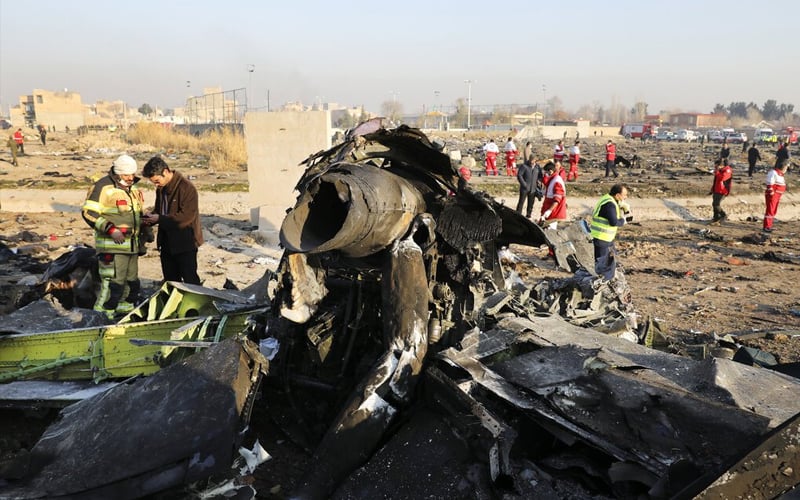
KUALA LUMPUR, Jan 23 — Whether or not the promises of the gig industry holds true depends on where gig workers stand in the employment hierarchy.
According to Malaysian think-tank The Centre’s survey on the gig industry here, the bulk of the industry comprises menial jobs where workers do not have a fixed income and little social protection.
Workers who occupy the bottom rung of this sector also assume most of the risk and cost to perform a task.
However, the ability to take on multiple jobs with flexible hours can be rewarding to the professional whose services are often sought after by firms that can offer lucrative pay.
But these professionals form only a small segment of the gig industry.
Khazanah Research Institute researcher Nur Thuraya Sazali, who authored “The Demise of Formal Employment? — A Literature Update on Informality”, a working paper explaining the trends and challenges of informal work, said the findings should be a concern for policymakers.
“If we accept the finding to be a reliable representation of reality, the finding is worrisome,” she said in an email reply to Malay Mail.
“It is worrisome because this particular kind of gig work, unlike say graphic designer or PR personnel, has near non-existent career progression,” she added.
“This is not a job that you can get better at; it is poorly protected in a high-risk avenue.”
The Centre had earlier this month released findings that echoed grouses by gig workers worldwide: that something intended as a “side hustle” has now turned into the only source of steady income.
The survey polled over 400 e-hailing drivers and food delivery riders, which the think-tank said form the largest segment of gig workers in the country, although such claims are hard to verify given the lack of data on these workers here.
Not surprisingly, over half the respondents viewed themselves as full-time employees.
These respondents were mostly in the prime employment age of between 25 and 44 but have no tertiary education, which means they have limited career choice.
Pretty precarious
Nur Thuraya said while the survey’s sampling was narrow, the findings were consistent with national labour market data that showed a drop in the share of standard employment and the rise of self-employed or “own-account” workers between 2010 and 2018.
The former dropped four percentage points to 72 per cent, while the number of “own-account” workers rose three percentage points to 19 per cent.
Nur Thuraya said the margins, though small, underpin the seismic transformation in employment trends that is shaking the global job market.
An estimated 48 million people are registered for online microtask work, according to data compiled in 2015.
Platform-based gig industry, which came to life just around five years ago, grew at a staggering rate of 26.5 per cent between May 2016 and September 2019, according to the Oxford Internet Institute.
In Malaysia, ride-sharing platforms like Grab and Uber took less than five years to sign up 50,000 to 60,000 drivers within the Klang Valley since the firms debuted in 2012, accompanied by the rapid growth of e-commerce, according to Nur Thuraya’s working paper.
Between 2010 and 2015, the local e-commerce value had surpassed nominal GDP.
Unions in particular found the trend alarming. Labour rights activists warned about the gig economy’s potential to destabilise the job market, decimate traditional employment and the legal protection that comes with it, encouraging exploitation.
This has led to calls to regulate gig work and accord its workers equal status to that of a formal employee.
But experts have cautioned against imposing a one-size-fits-all policy onto a highly heterogeneous industry.
KRI said several studies have found indiscriminate formalisation could have a negative impact especially on the industry’s most vulnerable segments.
This is because different firms and workers have different sets of incentives to be informal, which derives unique challenges and individual solutions.
“Evidence from microdata analysis of developing countries suggests that participation into the informal economy arises from both exclusion and exit, and one enforces the other,” KRI said.
“For instance, due to the labour market structure (exclusion), workers without the human capital that are in demand (exclusion) may choose to be informally employed (exit) in order to be employed at all.”
Exclusive privileges
The Exit theory posits that informal workers or firms voluntarily exit the formal economy motivated by either opportunity, defence or passive evasion, while proponents of Exclusion argue that these actors are excluded not by choice but by necessity.
The former case likely comprises mostly professionals, according to international hiring firm Randstad. Their niche skills make them valuable to larger firms, more so in a market where the talent pool is small like Malaysia.
As a result, more professionals have become more open to contract-based employment as the alternative to traditional career paths, noted Jaya Das, managing director of Randstad Singapore.
“This group of workers can choose which companies they want to work with to build their own portfolio, as well as manage their own time so that they can have a healthy work-life balance,” she said in an email interview with Malay Mail.
“They can choose to work on projects that they are passionate about and get paid a premium for their expertise.”
Yet, The Centre’s survey paints a starkly different picture for the bulk of the gig workforce.
Many said the hours can be long and gruelling if they are to make ends meet. The reported average income was RM2,999, just a few hundred ringgit more than Bank Negara Malaysia’s base wage estimation to survive in any of the country’s major cities.
Most respondents are also medically vulnerable. Nearly 80 per cent said they have no medical insurance nor were they aware about their right to social protection.
For Grab workers, they are offered what the firm calls a “daily insurance” but the policy only covers injuries sustained when workers go “online.”
This means there will be no coverage the moment a worker deactivates; accidents that happen during break time will not be covered.
The next best thing would be the Self-Employment Social Security Scheme (Socso), but this too is limited to work-related injury. Its employment injury scheme, however, does extend coverage to occupational diseases but that’s as far as it goes.
So how do experts explain why these workers take up jobs that offer so little security? Nur Thuraya offered no lead but said there is an urgent need to uncover the causes.
“More work would need to be done to uncover underlying factors behind the decision to do it full-time… one would hope there will be more in-depth discussion on this,” she said.
















